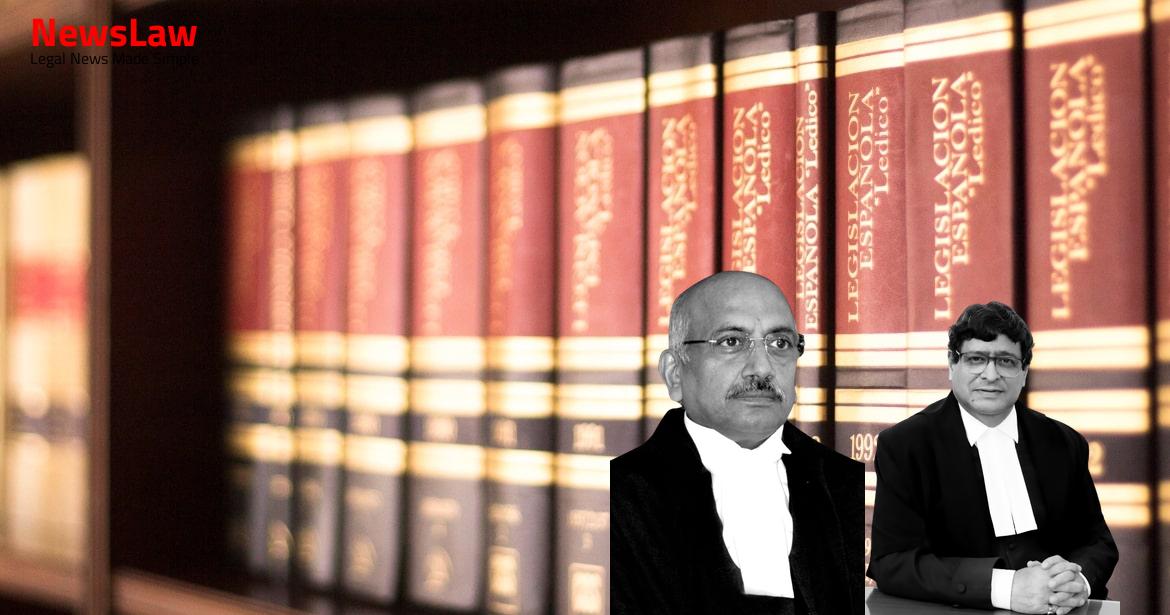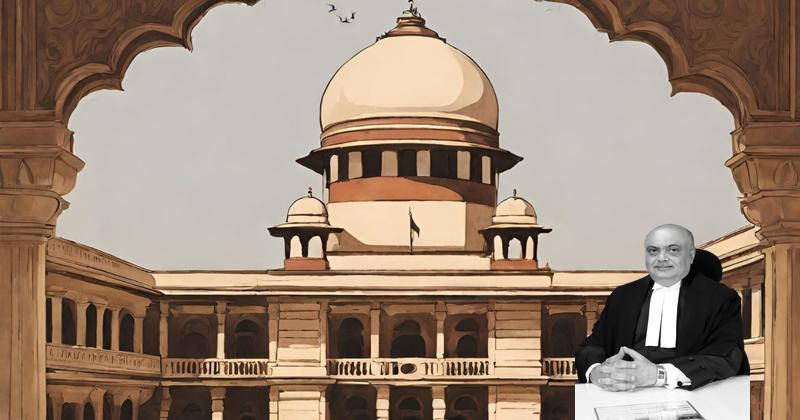The recent court case delves into the critical aspects of the limitation period and cause of action in civil suits, emphasizing the court’s scrutiny of adherence to legal norms. Through a detailed analysis of Order VII Rule 11, the judgment highlights the necessity of disclosing a valid cause of action at the outset. Exploring the concepts of ’cause of action’ and the timeline for filing suits, the case underscores the importance of factual accuracy and legal merit in legal proceedings.
Facts
- The suit property was transferred to Respondent No.1 based on the certified entry in the revenue records.
- Plaintiffs had applied for permission to sell the property to Respondent No.1 and received permission from the Collector.
- Plaintiffs acknowledged receiving the full sale consideration in the registered Sale Deed dated 02.07.2009.
- Plaintiffs alleged that Respondent No.1 issued false cheques for a substantial amount of the sale consideration.
- The suit was filed after a significant period from the execution of the Sale Deed, hence, barred by limitation.
- Subsequent Sale Deed dated 01.04.2013 was also challenged but was dismissed due to limitation.
- Respondent Nos. 2 and 3 were bona fide purchasers for valuable consideration.
- Plaintiffs did not raise any objection or complaint regarding the alleged non-payment of sale consideration for over 5 years.
- The Court held that the Sale Deed could not be declared void or ineffective as it was duly registered and acknowledged by the Plaintiffs.
- Plaintiffs did not deny executing the registered Sale Deed in favor of Respondent No.1
- Trial Court held the suit of the Plaintiffs as barred by limitation based on settled law
- High Court affirmed Trial Court’s findings and held the suit was filed beyond the three-year limitation period
Also Read: Analysis of Maintenance Laws and Enforcement Procedures
Analysis
- The Plaintiffs alleged non-payment of part of the sale consideration and sought cancellation of the Sale Deed based on this.
- The Sale Deed explicitly stated that the full consideration had been paid by Defendant No.1 to the Plaintiffs.
- The cause of action for the suit was claimed to have arisen in 2014 when alleged fraud was discovered, but the non-payment actually occurred in 2009.
- The Plaintiffs attempted to create an illusory cause of action to meet the limitation period for filing the suit.
- The Plaintiffs remained silent for over 5 years without taking legal action for non-payment.
- The suit property was further sold to others by Defendant No.1, implying acceptance of full payment.
- The Plaintiffs did not raise complaints to authorities regarding alleged violations by Defendant No.1.
- The suit was deemed vexatious, lacking merit, and not disclosing a right to sue, leading to its rejection.
- Order VII Rule 11 provides the court with the power to dismiss a suit at the beginning if grounds for termination are satisfied.
- Documents that should be produced by the plaintiff when the plaint is filed must be entered in a list and produced in court, or they will not be considered as evidence without the court’s permission.
- Section 3 states that suits filed after the prescribed period will be dismissed, regardless of whether limitation was used as a defence.
- Order VII Rule 14(1) requires the plaintiff to list and produce documents they rely on in court when filing the plaint.
- Articles 58 and 59 of the Schedule to the 1963 Act specify the time limits for suits seeking declaration, cancellation of an instrument, or rescission of a contract.
- The power of the court to terminate a civil action is drastic and must adhere to conditions in Order VII Rule 11.
- The concept of ’cause of action’ includes necessary facts for the plaintiff to prove for judgment.
- The right to sue accrues when the cause of action arises.
- The court must examine the plaint to determine when the right to sue first accrued to the plaintiff.
- If the plaint does not disclose a cause of action or the suit is barred by law, the court must reject it.
- Clever drafting creating an illusion of cause of action should be addressed early in the process.
- Filings which waste judicial time and are bound to prove abortive should not be permitted to continue.
- The focus should be on substance over form when considering the validity of a cause of action.
- Reliance was placed on the judgment in Raghwendra Sharan Singh v. Ram Prasanna Singh (Dead) by LRs where it was held that the suit would be barred by limitation under Article 59 of the Limitation Act if filed beyond three years of the execution of the registered deed.
- The prayer for cancellation of the subsequent Sale Deed dated 01.04.2013 was made by the Plaintiffs, which cannot be entertained as the suit regarding the Sale Deed dated 02.07.2009 was rejected under Order VII Rule 11 clauses (a) and (d) of CPC.
- The suit was filed on 15.12.2014, although the cause of action arose in 2009 when the last cheque was delivered. The Plaintiffs did not prove that the suit was filed within the limitation period.
Also Read: Land Ownership Dispute under Regional and Town Planning Act
Decision
- The present suit filed by the Plaintiffs is an abuse of the court process and lacks merit.
- The Trial Court correctly applied Order VII Rule 11 CPC and allowed the application by Respondent Nos. 2 & 3, which was upheld by the High Court.
- The Civil Appeal is dismissed with costs of Rs. 1,00,000/- to be paid by the Appellant to Respondent Nos. 2 and 3 within twelve weeks.
Also Read: Interpretation of Contract Terms in Foreign Arbitral Awards
Case Title: DAHIBEN Vs. ARVINDBHAI KALYANJI BHANUSALI (GAJRA) (D) THR. LRS. (2020 INSC 450)
Case Number: C.A. No.-009519-009519 / 2019



